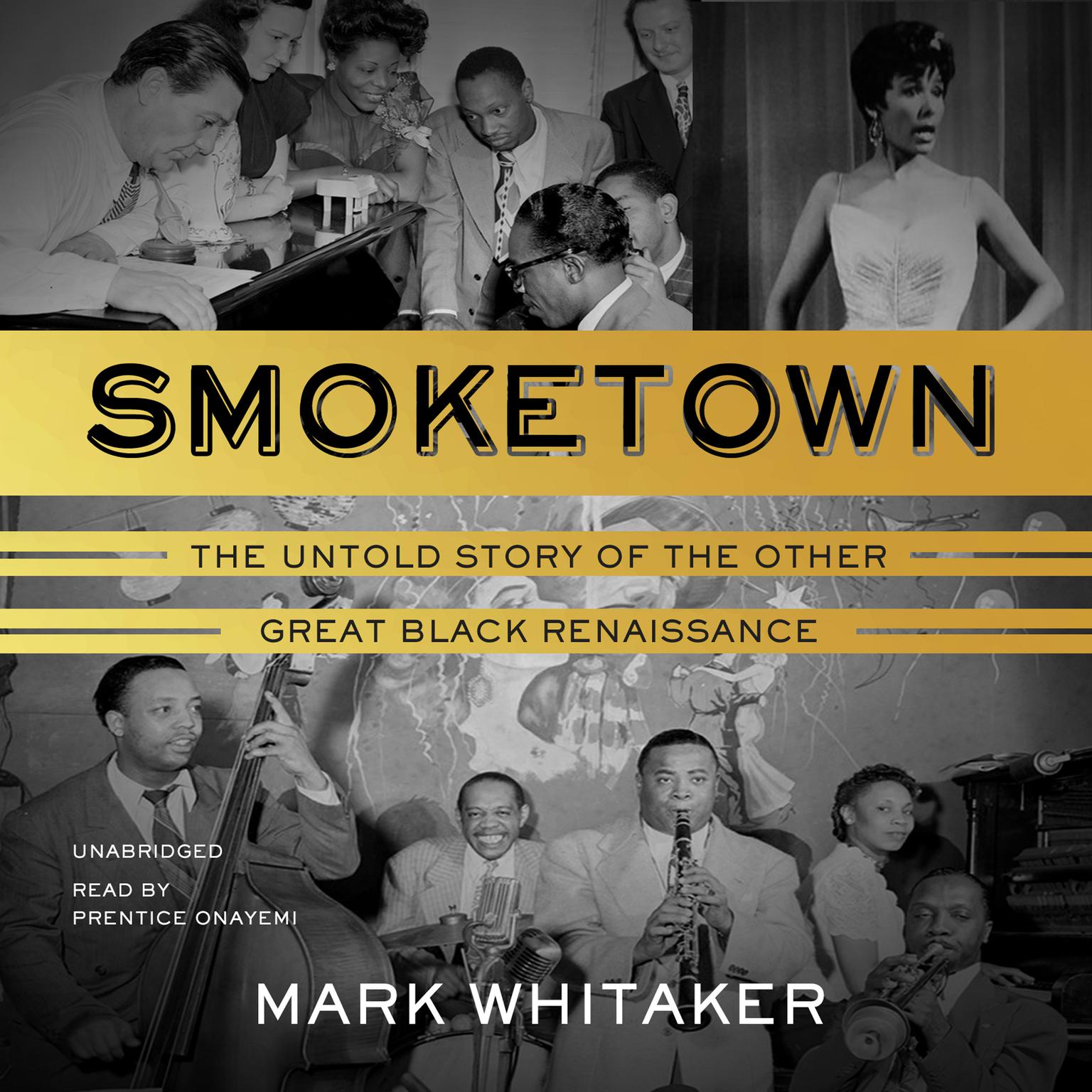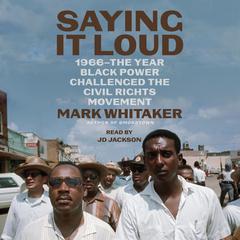 Play Audiobook Sample
Play Audiobook Sample
Smoketown: The Untold Story of the Other Great Black Renaissance Audiobook
 Play Audiobook Sample
Play Audiobook Sample
Quick Stats About this Audiobook
Total Audiobook Chapters:
Longest Chapter Length:
Shortest Chapter Length:
Average Chapter Length:
Audiobooks by this Author:
Publisher Description
The other great Renaissance of black culture, influence, and glamour burst forth joyfully in what may seem an unlikely place—Pittsburgh, PA—from the 1920s through the 1950s.
Today black Pittsburgh is known as the setting for August Wilson’s famed plays about noble but doomed working-class strivers. But this community once had an impact on American history that rivaled the far larger black worlds of Harlem and Chicago. It published the most widely read black newspaper in the country, urging black voters to switch from the Republican to the Democratic Party and then rallying black support for World War II. It fielded two of the greatest baseball teams of the Negro Leagues and introduced Jackie Robinson to the Brooklyn Dodgers. Pittsburgh was the childhood home of jazz pioneers Billy Strayhorn, Billy Eckstine, Earl Hines, Mary Lou Williams, and Erroll Garner; Hall of Fame slugger Josh Gibson—and August Wilson himself. Some of the most glittering figures of the era were changed forever by the time they spent in the city, from Joe Louis and Satchel Paige to Duke Ellington and Lena Horne.
Mark Whitaker’s Smoketown is a captivating portrait of this unsung community and a vital addition to the story of black America. It depicts how ambitious Southern migrants were drawn to a steel-making city on a strategic river junction; how they were shaped by its schools and a spirit of commerce with roots in the Gilded Age; and how their world was eventually destroyed by industrial decline and urban renewal. Whitaker takes listeners on a rousing, revelatory journey—and offers a timely reminder that Black History is not all bleak.
Download and start listening now!
“Each subject’s narrative is a nuanced portrayal meant to challenge our country’s often narrow, dismissive version of black history. Cultural heavyweights such as boxer Joe Louis are treated as historical catalysts rather than extraordinary oddities….[and] not defined by oppression. Despite the setbacks of systemic racism and discrimination, black excellence flourishes regardless of the white gaze.”
— BookPage
Quotes
-
“Prentice Onayemi offers an engaging, easy-on-the-ears narration…[with a] mellow tone…He varies his tone to fit the material and sometimes just to change the pace. For direct quotes, he changes his pitch or adopts an accent to set those words apart…The stories are interesting, and Onayemi tells them well. Winner of AudioFile Earphones Award.”
— AudioFile -
“Whitaker has given Pittsburgh’s wondrously rich black culture its due at long last…An absolute delight to read.”
— David Maraniss, New York Times bestselling author -
“Smoketown brilliantly offers us a chance to see this other black renaissance and spend time with the many luminaries who sparked it as well as the often unheralded journalists who covered it…It’s thanks to such a gifted storyteller as Whitaker that this forgotten chapter of American history can finally be told in all its vibrancy and glory.”
— New York Times Book Review -
“Terrific, eminently readable…These colorful stories of great black accomplishments simply make for fascinating reading.”
— Washington Post -
“Once upon a time, Pittsburgh was one of the country’s citadels of black aspiration in music, sports, business, and culture. This is the world affectionately summoned back to life with zest and passion by Mark Whitaker in Smoketown. There’s something close to enchantment to be found in the stories Whitaker unpacks piece by piece, name by glittering name.”
— USA Today (4 out of 4 stars) -
“Mark Whitaker’s chronicle of the rise and fall of black Pittsburgh is a revelation on every page. Comprehensive in scope and skillfully written.”
— Pittsburgh Post-Gazette -
“An expansive, prodigiously researched, and masterfully told history.”
— Kirkus Reviews (starred review) -
“[Whitaker] rescues from unjust obscurity an American episode that continues to reverberate.”
— George F. Will, New York Times bestselling author -
“In vividly recreating the mid-twentieth-century heyday of black Pittsburgh, an almost magical locale for journalism, sports, music, politics, and business…this is a story of strength, pride, and achievement.”
— Nicholas Lemann, New York Times bestselling author -
“Informative and illuminating…Whitaker shines a well-deserved and long-overdue spotlight on this city within a city.”
— Publishers Weekly -
“Proof that [Pittsburgh] had a thriving African American community rivaling those of Harlem and Chicago.”
— Library Journal -
“Mark Whitaker says his remarkable mid-twentieth century Pittsburgh ‘was a black version of the story of early twentieth-century Vienna.’ Mr. Whitaker is so riveting a storyteller that the reader even wonders if Belle Epoque Vienna had the equivalent of a Billy Eckstine, Mary Lou Williams, Billy Strayhorn, Joe Louis, or an August Wilson.”
— David Levering Lewis, Pulitzer Prize-winning author
Awards
-
A BookPage Top Pick for February 2018
-
Winner of an AudioFile Earphones Award
-
A New York Times Book Review Editor’s Choice of New Books We Recommend This Week
Smoketown Listener Reviews
Be the first to write a review about this audiobook!
About Mark Whitaker
Mark Whitaker is the author of several books, includingthe critically acclaimed memoir My Long Trip Home. The former managing editor of CNN Worldwide, he was previously the Washington bureau chief for NBC News and a reporter and editor at Newsweek, where he rose to become the first African American leader of a national newsweekly.
About Prentice Onayemi
Prentice Onayemi is an Earphones Award–winning audiobook narrator and a voice and film actor who is known for his roles in The Steam-Room Crooner, AmeriQua, and as Joey in the Tony Award–winning play War Horse.





